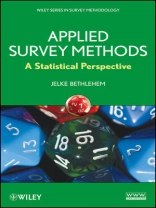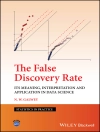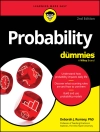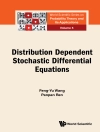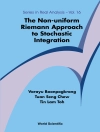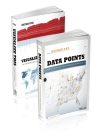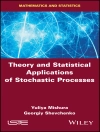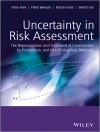A complete, hands-on guide to the use of statistical methods for obtaining reliable and practical survey research
Applied Survey Methods provides a comprehensive outline of the complete survey process, from design to publication. Filling a gap in the current literature, this one-of-a-kind book describes both the theory and practical applications of survey research with an emphasis on the statistical aspects of survey methods.
The book begins with a brief historic overview of survey research methods followed by a discussion that details the needed first steps for carrying out a survey, including the definition of a target population, the selection of a sampling frame, and the outline of a questionnaire with several examples that include common errors to avoid in the wording of questions. Throughout the book, the author provides an accessible discussion on the methodological problems that are associated with the survey process, outlining real data and examples while also providing insight on the future of survey research. Chapter coverage explores the various aspects of the survey process and the accompanying numerical techniques, including:
* Simple and composite sampling designs
* Estimators
* Data collection and editing
* The quality of results
* The non-response problem
* Weighting adjustments and methods
* Disclosure control
The final chapter addresses the growing popularity of Web surveys, and the associated methodological problems are discussed, including solutions to common pitfalls. Exercises are provided throughout with selected answers included at the end of the book, while a related Web site features additional solutions to exercises and a downloadable demo version of the Blaise system of computer-assisted interviewing. Access to the freely available Sim Sam software is also available on the related Web site and provides readers with the tools needed to simulate samples from finite populations as well as visualize the effects of sample size, non-response, and the use of different estimation procedures.
Applied Survey Methods is an excellent book for courses on survey research and non-response in surveys at the upper-undergraduate and graduate levels. It is also a useful reference for practicing statisticians and survey methodologists who work in both government and private research sectors.
Inhoudsopgave
Preface.
1. The Survey Process.
1.1. About Surveys.
1.2. A Survey, Step-by-Step.
1.3. Some History of Survey Research.
1.4. This Book.
1.5. Samplonia.
Exercises.
2. Basic Concepts.
2.1. The Survey Objectives.
2.2. The Target Population.
2.3. The Sampling Frame.
2.4. Sampling.
2.5. Estimation.
Exercises.
3. Questionnaire Design.
3.1. The Questionnaire.
3.2. Factual and Nonfactual Questions.
3.3. The Question Text.
3.4. Answer Types.
3.5. Question Order.
3.6. Questionnaire Testing.
Exercises.
4. Single Sampling Designs.
4.1. Simple Random Sampling.
4.2. Systematic Sampling.
4.3. Unequal Probability Sampling.
4.4. Systematic Sampling with Unequal Probabilities.
Exercises.
5. Composite Sampling Designs.
5.1. Stratified Sampling.
5.2. Cluster Sampling.
5.3. Two-Stage Sampling.
5.4. Two-Dimensional Sampling.
Exercises.
6. Estimators.
6.1. Use of Auxiliary Information.
6.2. A Descriptive Model.
6.3. The Direct Estimator.
6.4. The Ratio Estimator.
6.5. The Regression Estimator.
6.6. The Poststratification Estimator.
Exercises.
7. Data Collection.
7.1. Traditional Data Collection.
7.2. Computer-Assisted Interviewing.
7.3. Mixed-Mode Data Collection.
7.4. Electronic Questionnaires.
7.5. Data Collection with Blaise.
Exercises.
8. The Quality of the Results.
8.1. Errors in Surveys.
8.2. Detection and Correction of Errors.
8.3. Imputation Techniques.
8.4. Data Editing Strategies.
Exercises.
9. The Nonresponse Problem.
9.1. Nonresponse.
9.2. Response Rates.
9.3. Models for Nonresponse.
9.4. Analysis of Nonresponse.
9.5. Nonresponse Correction Techniques.
Exercises.
10. Weighting Adjustment.
10.1. Introduction.
10.2. Poststratification.
10.3. Linear Weighting.
10.4. Multiplicative Weighting.
10.5. Calibration Estimation.
10.6. Other Weighting Issues.
10.7. Use of Propensity Scores.
10.8. A Practical Example.
Exercises.
11. Online Surveys.
11.1. The Popularity of Online Research.
11.2. Errors in Online Surveys.
11.3. The Theoretical Framework.
11.4. Correction by Adjustment Weighting.
11.5. Correction Using a Reference Survey.
11.6. Sampling the Non-Internet Population.
11.7. Propensity Weighting.
11.8. Simulating the Effects of Undercoverage.
11.9. Simulating the Effects of Self-Selection.
11.10. About the Use of Online Surveys.
Exercises.
12. Analysis and Publication.
12.1. About Data Analysis.
12.2. The Analysis of Dirty Data.
12.3. Preparing a Survey Report.
12.4. Use of Graphs.
Exercises.
13. Statistical Disclosure Control.
13.1. Introduction.
13.2. The Basic Disclosure Problem.
13.3. The Concept of Uniqueness.
13.4. Disclosure Scenarios.
13.5. Models for the Disclosure Risk.
13.6. Practical Disclosure Protection.
Exercises.
References.
Index.
Over de auteur
Jelke Bethlehem, Ph D, is Senior Advisor in the Department of Statistical Methods at Statistics Netherlands and Professor of Statistical Information Processing at the University of Amsterdam. Dr. Bethlehem’s current research interests include Web surveys, computer-assisted survey information collection, graphical techniques in statistics, and user-friendly software for statistical analysis. He is coeditor of Computer Assisted Survey Information Collection, also published by Wiley.
